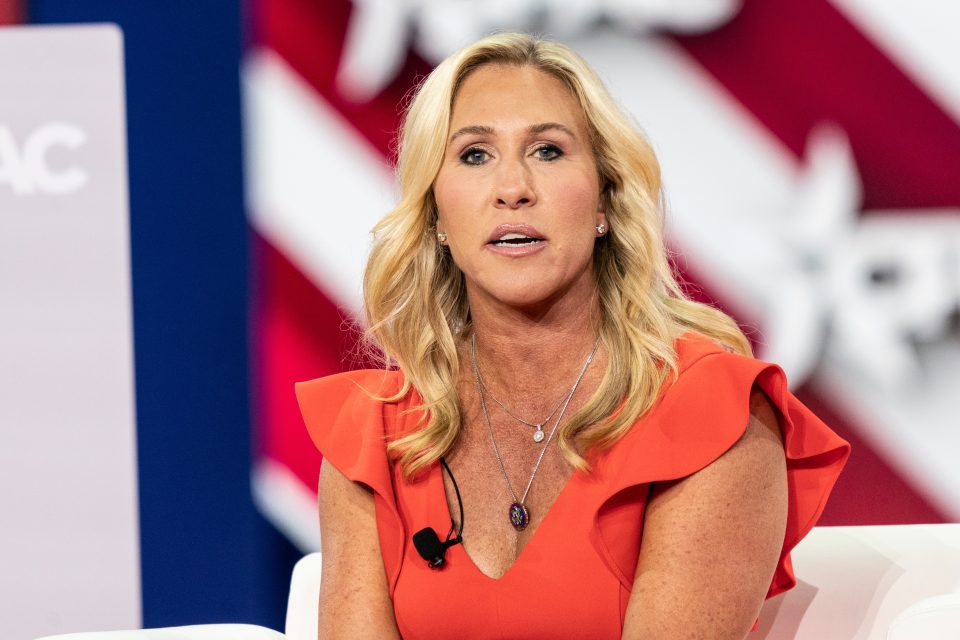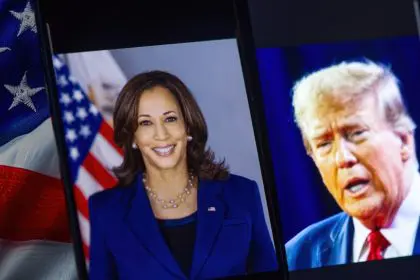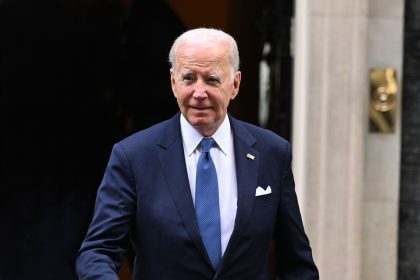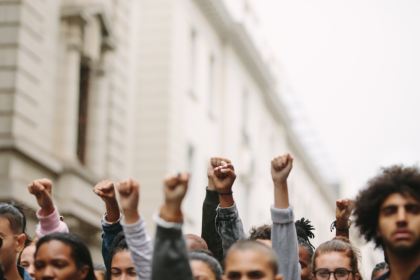
In a recent campaign rally for Donald Trump in Rome, GA, Rep. Marjorie Taylor Greene found herself at the center of controversy not just for her political affiliations but also due to her relationship with conservative journalist Brian Glenn. Greene, known for her outspoken views, previously criticized right-wing figure Laura Loomer for her racist remarks about Vice President Kamala Harris. However, Glenn’s recent comments about racial profiling at polling stations have raised eyebrows and sparked discussions about the implications of such rhetoric.
Glenn’s Provocative Remarks
During the rally, Glenn suggested that Trump-supporting poll watchers should monitor voters closely, particularly those who appear to be non-white. He stated, “If you go to a polling center and you see bus loads, van loads of people walking up to vote that clearly perhaps look like they could be… let’s just make sure people are checking IDs.” This statement implies a need for heightened scrutiny of voters based on their appearance, a notion that many view as racially charged and discriminatory.
Glenn continued, emphasizing the need for poll watchers to alert election officials if they suspect that non-citizens are attempting to vote. His comments have been interpreted as a call to disproportionately target voters of color, raising concerns about voter suppression and the legality of such actions.
The Legal Implications of Racial Profiling in Voting
It is crucial to note that Glenn’s suggestions are ethically questionable and legally dubious. Poll watchers are typically allowed to observe and report suspicious activities but are prohibited from directly interacting with voters or checking their identification. Such actions could lead to serious legal repercussions for those who attempt to enforce these discriminatory practices.
Moreover, Glenn’s rhetoric perpetuates the long-standing myth of widespread voter fraud, particularly among immigrant populations. This narrative has been debunked by numerous studies, which show that instances of non-citizen voting are exceedingly rare. Despite this, Republican legislators have pushed for laws aimed at preventing non-citizens from voting, further fueling the fire of misinformation surrounding election integrity.
Trump’s Campaign and the Push for Poll Monitoring
Earlier this year, Trump’s campaign announced plans to deploy over 100,000 volunteers and attorneys across key battleground states to monitor the election process. This initiative is rooted in Trump’s unfounded claims that election fraud cost him the 2020 presidential election. Lara Trump, the former president’s daughter-in-law, has also been vocal about preventing “illegal citizens” from voting, despite the lack of evidence supporting such claims.
These actions reflect a broader strategy within the Republican Party to instill fear around voting practices and to mobilize supporters under the guise of protecting election integrity. However, the reality is that these efforts often translate into voter suppression tactics that disproportionately affect communities of color.
Greene’s Silence on Glenn’s Comments
Despite her previous condemnation of Loomer’s racist remarks, Greene has yet to publicly address Glenn’s controversial statements. This silence raises questions about her commitment to combating racism within her own circle. Greene’s history of inflammatory comments about various marginalized groups, including migrants and people of color, suggests that her values may align more closely with Glenn’s views than she would like to admit.
The Need for Accountability
The implications of Glenn’s comments extend beyond mere political rhetoric; they highlight a troubling trend of racial profiling in the electoral process. As the US approaches the upcoming elections, it is imperative for voters, especially those from marginalized communities, to remain vigilant against attempts to suppress their voices.
Accountability is essential, not only for public figures like Greene and Glenn but also for the broader political landscape that allows such rhetoric to flourish. As citizens, we must advocate for fair and equitable voting practices that uphold the rights of all individuals, regardless of their race or background.













